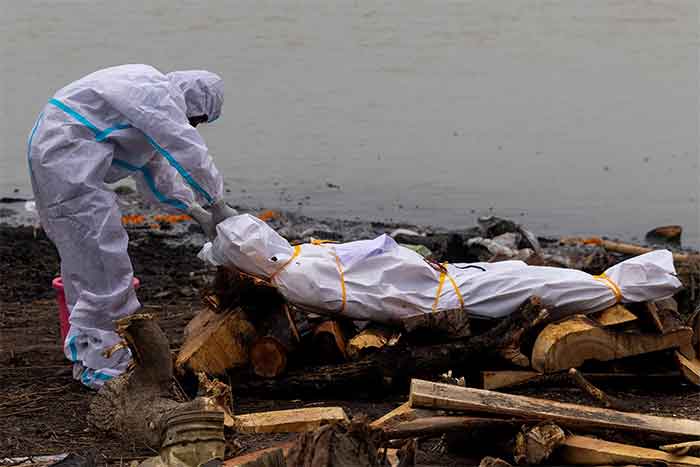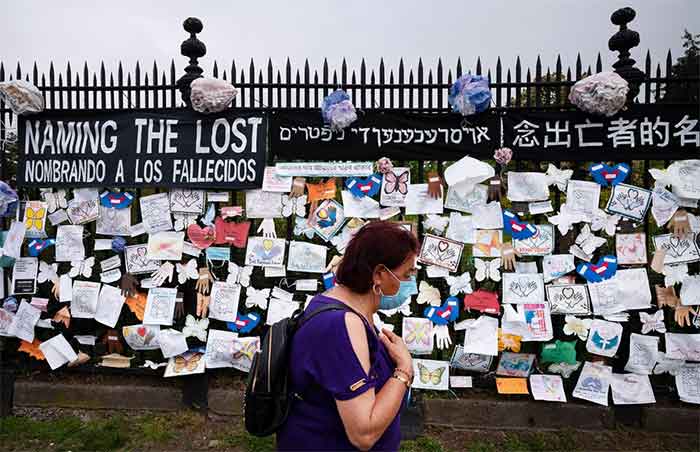
While watching vacuous memes of a person trying to kill the dullness of corona by his otiose attempts to scale the grass of his garden with comb and scissors. I see a drunken man walking the deserted road spitting invective and cursing Corona. With whimsical goggling I also see a shopkeeper trying to fit a customer in a fuzzy circle for maintaining the necessary physical distancing as part of a campaign to kill the chain of this fiendishly diabolical virus. Giving a segue to the context of this novel Coronavirus and its deadly attack on the human race around the world. A large section of people is fighting back by quarantining themselves to play hide and seek with this pandemic, claiming a frightening number of lives and engulfing the globe exponentially.
Historicity bears testimony and substantiation that isolation has paved the way for innovations in different fields of knowledge. While this dichotomy between isolation and creativity remains appreciated. We at the same time cannot forget the antithetical ambiances where a charming teen Emily Owen kills herself as she was unable to handle the life in the times of corona, a man who was suspected of coronavirus committed suicide by jumping from the seventh floor of Safdarjung Hospital, along with the image of Bala Krishna who feared that he had been infected with the virus started pelting stones on everyone that came near him before he killed himself. These melancholic images speak volumes about the other side of isolation that pushes us towards the neo- imaginations of articulating life in quarantine. Where the idea of isolation translates to something different that doesn’t meet creativity at all. It is the Dullness of days and hopeless nights that wakes up people with anxiety in these trying times.
In such context handling these exasperating days becomes a collective responsibility. Where humour has a great role to calm the anxious mental geographies of people who are trying to survive these desperate times. It is a fact that tyrants have always feared jesting. Since the idea of the tyrant has shifted from visible to invisible. The anxiety as a result of the invasion of this ‘bio tyrant’ can be minimized and pruned by humour. Umberto Eco in his book The name of the Rose while blending various techniques of metanarratives, semiotics and biblical analysis largely articulate the powerful and subversive function of laughter to lift the imagination of people with temporalities that have the power to distress people. Where the functionality of humour is not to surrender to the actuality of tyrant but to laugh at it. Along the similar lines, Mikhail Bakhtin in his Rabelais and his World also highlighted the importance of humour and its subversive functionality of degrading tyrants and despots. Such knowledge holds special meaning in the times of corona anxiety where corona memes and videos serve as digital weapons to fight this bio-tyrant from poisoning the contentment of people in quarantine
While trying to articulate the politics of quarantine. We enunciate the idea of quarantine as a safe space that itself is a privilege. Imagining the quarantine life in luxury condominiums for rich and wealthy. Life in such quarantine will have enough opportunities to heal and detox their bodies. While it might also mean a reduction in conspicuous consumption and less vicarious pleasure in luxury living. But juxtaposing the latter with life in the quarantine of a family packed in a room with conditions of squalor needs sensibilities to understand the paroxysms of pain for the want of breath money. While extending these inequalities we have also witnessed comparisons of Corona quarantine with the inured political quarantine of Kashmir that largely gets manifested through frangible peace and indelible conflict in the valley. Given the strong differences between these two actualities. It is only the constipation of imagination that will draw such bogus analogies.
In such context, if one draws the connections between lethal Covid 19 and the crisis it has nurtured around the world. We come to the conclusion that this invisible enemy has snatched the idea of freedom from the people and has pushed nations to rethink their policies and priorities in investments. What horrifies many nations is the permeable and stealthy character that allows it to cross borders of countries that have boasted about their sophisticated weaponry. The images of helplessness of doctors seeing deaths in large numbers, of the desperateness and anguish in people wanting ventilators and much care, of people who are unable to see the dead bodies of their loved ones. The restless souls of people who died, laugh at the futility of huge investments on arms and weapons which could have been channelized for spaces of care. As BBC reports Dr. Antonio Magi, President of Rome doctors Association saying “deaths were preventable if medics had proper masks and supplies. Wars must be organised during peace time not battle”.
So as nations combat this global health crisis. Some question are in search of answers. Will the postexperience have possibilities of shifting the popular opinion about rethinking on expenditure from armament dealings to scientific research? Will this crisis shake phantasmagoria with new thinking and imagination of new politics on healthcare? Will it leave lessons of complacency for developing countries to divert resources to better health care for all, rather than getting trapped in arms race and accumulation of heavy weaponry? Will celebrities and sports superstars continue to get paid millions of dollars for soothing public imagination with their fugacious maggie pleasures, while a researcher will be paid meagrely for discerning abilities as compared to some crass entertainment? Will nations collectively take a moral message from this current crisis, as the Syrian boy’s valediction, “I am gonna tell God everything” may have been silently heard by God.
Aamir Qayoom is a Research scholar at University of Delhi. He previously worked as research assistant for University of Western Australia (UAW). He largely writes on intersectionality of politics and literature and can be reached at [email protected].
SIGN UP FOR COUNTERCURRENTS DAILY NEWS LETTER

















































